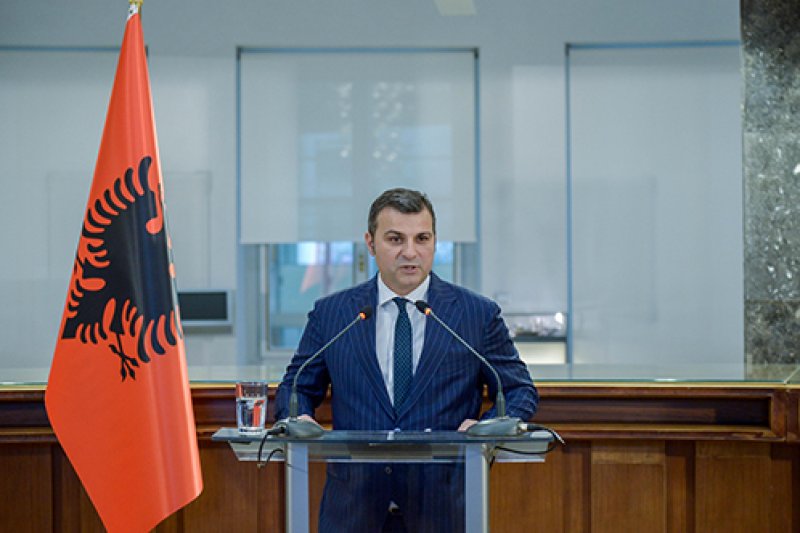'Economy Continues Positive Trend'
Albania's central bank said on Wednesday it has decided to keep its benchmark interest rate unchanged at 2.75% to maintain price stability and support economic growth.
The supervisory council also decided to maintain the overnight lending rate at 3.75% and the overnight deposit rate at 1.75%, it said in a statement.
“Although incomplete, available data suggest that the Albanian economy continues to be on a positive development trajectory. The volume of economic activity, employment, and wages have been increasing over the last two quarters, inflation remains at low levels, financial markets appear calm, while lending has recorded rapid and stable growth,” central bank governor, Gent Sejko, was quoted as saying.
Inflation averaged 1.9% in the first two months of 2025, on the back of lower food and household electricity prices. Core inflation remained stable, driven by resilient domestic demand and rising wages.
Economic growth is expected to remain stable, driven by consumption and investment, while exports remain weak. Inflation is projected to return to the bank’s 3% target by end-year, due to balanced demand and supply conditions, as well as lower imported inflation.
"The balance of risks surrounding these forecasts appears – for the time being – neutral. However, high geopolitical tension and the potential increase in trade barriers and tariffs could bring a supply shock with potentially negative consequences for economic growth and inflation," Sejko stated.
Albania's GDP increased by an annual 4.09% in the third quarter of 2024, after growing by 4.06% in the previous quarter, the country's statistics office, INSTAT, has said.
Albania's central bank last cut its key interest rate by 0.25 percentage points in November, citing easing inflation and sustained economic growth.
“BoA’s prudential and consistent monetary policy has enabled inflation to return close to our target without undermining the positive trend of economic growth and financial stability. In addition, it has accommodated a calm financial environment,” Sejko added.
“Economic projections for the future remain positive. In the baseline scenario, inflation is expected to fluctuate close to the target, while the Albanian economy is expected to grow at a stable pace in the medium term,” the governor noted.
Sejko also said that inflation of consumer prices recorded a slight decline in the first two months of 2025, averaging 1.9%. Volatility in unprocessed food prices and a reduction in energy prices for households drove inflation coming down. On the other hand, the inflation of other consumer basket items remained relatively stable.
“The expansion of aggregate demand has been accompanied by the rise in employment, a decline in the unemployment rate, and continued increases of wages in the private sector. According to INSTAT data, employment in the fourth quarter recorded an annual growth of 1.8%, while private sector wages rose by 9.5%. At the same time, the average unemployment rate in 2024 fell to 8.5%, compared to 9.5% in 2023. As we have emphasized before, growth in employment and wages contribute to higher households’ incomes, but they also tend to translate into rising labor costs and consumer prices,” Sejko noted.













